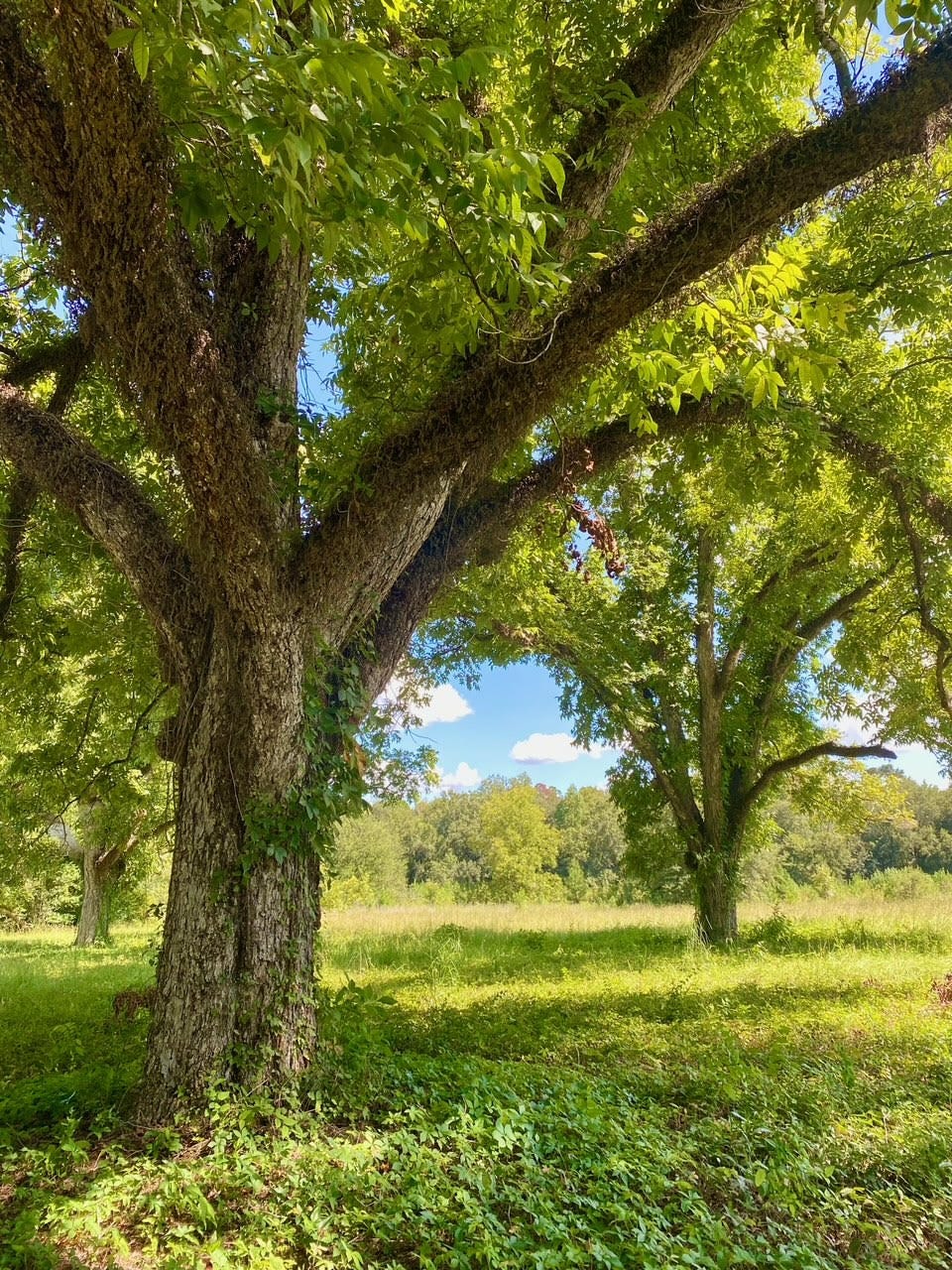All this week, a story has been bouncing around in the back of my mind, one I’ve been wanting to share with you since I heard it while sitting in church with my family this past Sunday.
The church we attend (most? some? much? of the time) is a relatively small one just up the road from our house; it doesn’t feel little when you’re inside, but it’s easy to miss if you’re driving past it.
The story came in a sermon told by our parish priest, who loves to sprinkle literary and intellectual references into the stories he tells; of course, I’m a sucker for those and park myself in front whenever I get the chance to hear him give a talk.
On Sunday, he shared a story about an idea, one we’ve all heard before: the act of taking a “leap of faith,” the meaning of which is clear in this context, but can also mean any kind of sudden jump into the unknown — based on a feeling, a desire, a yearning for something beyond what we happen to be living right now.
Or at least that’s what I’ve always thought it meant. The more he talked, and the more I listened, it started becoming clear that maybe I’d never really understood it at all.
The idea I thought I knew, and had assumed to be universal, actually no one had ever heard of or thought of until the Danish poet-philosopher-theologian Søren Kierkegaard wrote about it back in the mid-19th century, in a book he published called Fear and Trembling.
Now, a little bit about Kierkegaard: he never actually used the phrase “leap of faith” in his writing, though it’s come to be one of the ideas people think of most when they think of his work. (He used the phrase “qualitative leap,” which I think you’d agree doesn’t have quite the same ring to it.)
What he meant by came in reaction to the world he observed at the time — more specifically, the Christian world he was a part of — which he believed had over-intellectualized what religion and faith were all about.
Yes, doctrine and rules have their place, he wrote. But on their own, doctrine and rules are inert; it takes a “leap” of the heart to learn how to embody them in one’s own life, as the writer Mark Tietjen describes here:
“It is similar to the trust required of a person learning to swim. Even if the would-be swimmer has read books about each stroke, been given instruction by an Olympian swimmer, and can recount the importance of efficient breathing techniques, this person cannot learn to swim without plunging into the water.”
If I haven’t lost you by this point — and I hope I haven’t! — let me emphasize that this isn’t an attempt to proselytize or convince you of anything about a particular faith. (As our priest pointed out this past Sunday, this idea of Kierkegaard’s is a critique of Christianity, not a defense of it.)
Even though Kierkegaard wrote his book almost two centuries ago, the idea hit me like a lightning bolt when I heard it this past Sunday — because putting off fully committing to the things we say we care about, we’re just as guilty of in our own, more modern ways — I certainly know I am.
If you were take a look at my Strava profile, for instance, you’d see a string of steady, consistent 3- and 4-mile runs, going back for months. It’s a distance I’m comfortable with, feel easy running and incorporating into my life.
But there’s a difference between a groove and a rut, you know? Have I not pushed myself to go a little father, or a little faster, when maybe I could have?
When I watch things like the amazing American sprinters at the Olympics last summer, or follow events like the Barkley Marathons, in which a few dozen participants are competing in the (incredibly grueling!) hills of east Tennessee as I write this, I’m inspired.
What they’re attempting is so incredible, it’s amazing to watch. These are athletes who’ve pushed themselves to do things I imagine they weren’t really sure they could do; that’s my favorite thing about watching events like the Olympics, in fact — seeing the looks on the athlete’s faces when they win, after everything they’ve been through to get there. It’s magical.
Two centuries later, I think what Kierkegaard might be saying to us now is, even if you’ve procrastinated, over-thought and put off action, it’s not too late. The fact that you feel the kind of yearning that we think of when we hear a phrase like “leap of faith” — that stirring in your soul that only you really know — doesn’t have to be an obstacle. It can be an invitation.
When you feel it, that’s a sign that there’s something still inside you that wants to climb higher, go farther and do more — and the desire wouldn’t be in your heart if you didn’t.
There’s still a chance to dig deeper, aim higher and reach for more. Right here, right now.
Right? (I hope so! I’m just winging it myself, to be honest… but I think that’s right 😃)
Anyway, I hope you’ve had a great week so far and have gotten some great runs in — as always, keep in touch and let me know how your running/life is going.
Your friend,
— Terrell



So thoughtful! And applicable to so many areas of life!
love this! thank you.